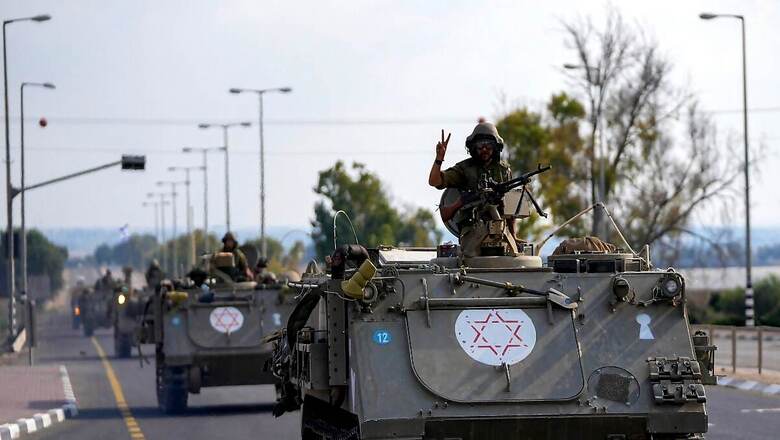
views
On October 7th, there was a significant escalation of conflict between the Palestinian militant group Hamas and Israel. Hamas initiated a major attack, involving hundreds of gunmen infiltrating communities near the Gaza Strip. Tragically, this resulted in the loss of at least 1,400 lives among the Israeli population. According to the Israeli military, 199 soldiers and civilians, including women and children, are being held as hostages in Gaza.
Conversely, the Israeli military carried out numerous airstrikes against Gaza, resulting in the deaths of more than 2,700 Palestinians. Additionally, Israel imposed a complete blockade on the territory, which included restricting access to food, fuel, and other essential resources. Moreover, Israel massed its forces along the Gaza boundary, raising concerns of a potential ground operation that could result in further casualties.
Udit Mehta, Executive Vice President – Global Security Solutions, International SOS discusses how the organisation is helping on ground.
Question 1: How might the conflict develop over the coming days or weeks?
Answer: Amidst a high likelihood of Israel launching a ground offensive into the Gaza Strip in the coming days, we could expect the deployment of Israeli troops in the area in the near-term. This will likely be concurrent with continued albeit sporadic rocket attacks targeting southern and central Israel.
Additionally, there would remain an increased risk of militant attacks within Israel as well as the possibility of an escalation in conflict with Hizbullah on Israel’s northern border with Lebanon.
Question 2: What safety advice is being provided for people and businesses on the ground?
Answer: International SOS raised its evacuation monitor level for both Israel and the Palestinian Territories on 11 October from an advice to Standy-By to Evacuate Non-Essential Staff. With commercial air options likely to deplete, evacuation options are liable to be constrained, necessitating the need for organizations to implement an evacuation of non-essential workforce.
Additionally, for those staying back in the area, a complete avoidance of all movement within a ten-mile (16km) radius of the Gaza Strip as well as within six miles (10km) of Lebanon and Syria is recommended. It is also imperative to understand the immediate actions to take on hearing air raid warnings and remain aware of the location of the nearest air raid shelter.
Question 3: How might the conflict affect businesses in the region, particularly neighbouring countries?
Answer: As with any situation driven by conflict the risks accrue to an area wider than the core of the geographical context. More specific to the conflict in Israel, these risks are further elevated given the geo-political context of the region coupled with the unprecedented nature of the attacks and ensuring violence. There are hence likely to be far-reaching consequences in addition to the ongoing disruptions to the movement of people, supply chain of goods and ancillary risks emerging from the ongoing situation.
As such businesses operating in the region need to immediately re-assess escalation management and evacuation plans as well as review triggers for geo-political volatility. This in addition to periodic simulation exercises is a key mitigation measure.
Question 4: How is International SOS assisting clients in the region?
Answer 4: International SOS has deployed an Incident Management Team (IMT) that is coordinating support on the ground. We have thus far successfully completed more than 30 secure ground movements and are coordinating two charter flights from Tel Aviv. Our in-country capabilities also include partners that can provide secure transport services, close protection, mobile patrol services, procurement of essential food supplies and distribution. These capabilities of course remain subject to change given the highly fluid on-ground environment. We also remain capable of providing Medical Assistance through our network in Israel in addition to Emotional Support services including individual tele psychological support and counseling sessions.


















Comments
0 comment